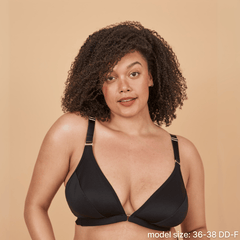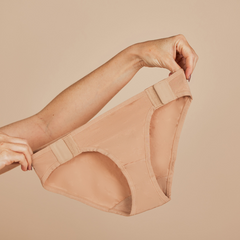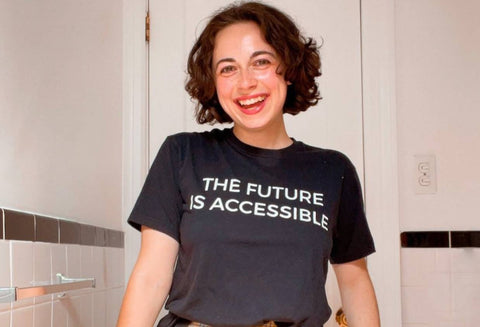
Nicole: We've talked before but just for context, can you tell us a bit about yourself?
Britt: My name is Britt Belwine, I use she/her pronouns, I'm 27 and I live with Ehlers Danlos Syndrome (EDS) and Complex Regional Pain Syndrome (CRPS). I am a disabled law student, content creator, and disability justice advocate. My work primarily focuses on the intersection between disability rights and mass incarceration.
Nicole: What made you decide to study law?
Britt: I fell into law sort of in a series of happy accidents. I experienced injustice firsthand as a disabled person trying to navigate healthcare and inaccessibility. I witnessed other members of my community going through the same sort of experiences and people would say all the time, “Oh, that's illegal, you should sue.”
And we'd all be like, “Yeah, whatever,” because none of us had the money or the time and resources to deal with the lawsuit. We were busy just trying to stay alive and survive.
I also saw what a powerful tool the law can really be for the disabled community. The ideal is nothing about us without us, so if many decisions that are going to be shaping our lives are going to be happening in this legal world, we should be at the table.
That’s how I decided to become a lawyer to fight for disability justice, to make the law and hopefully the world a more accessible and more equitable place.
Nicole: What prompted you to take that perspective and lens, and then apply it into social media? Because you've also built a lot of awareness and community there.
Britt: Yes, I started posting and talking about disability on social media before I came to law school. It really started as a space to just vent my frustration when I was first diagnosed, and when my health was getting really bad.
I didn't really know anybody else who was disabled and there weren't a lot of people that I felt I could look to. So, although it originally began as a space where I could vent about the inaccessibility of my college campus, over time I realized that this is something that other people needed as well.
And I really had the opportunity to be that person that I needed and to talk about the things that people say you shouldn't talk about. I could challenge this narrative that disability exists only as a tragedy or to inspire other people.
I wanted to show that we have our own lives and our own stories. And they're not tragedies. We're doing incredible stuff on our own and hopefully encourage other people to see that like, you can still, you know, go after the things you want in life, and you can still live a full incredible life. Disability is not by any means the end of the world. It's just the beginning.
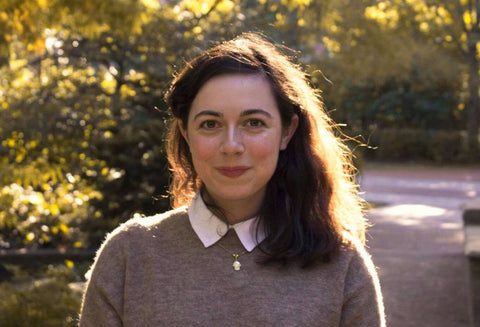
Nicole: Let’s pretend that none of your classmates are disabled, which is probably incorrect, but you've leaned into that identity probably a bit more than others. How have your perspective on disability and your disability shaped your experience in law school differently than your classmates?
Britt: Yeah, absolutely. I think that it’s so interesting to talk about the visibility of disability in the law because especially in the field, I think it’s very taboo.
People are really scared to talk about it, but there’s a power in being open about your identity and your experience. And I think that when someone can be open about their disability, it can oftentimes encourage others to do the same.
For me, it took a lot of unlearning to understand that my disability is a weakness and working in the law has showed me that my disability is a strength. I do think it makes me better at [practicing law] than I would have been otherwise.
It’s shown me what it's like to be on the other side. To be the client or the person who feels powerless. That allows me to connect with clients and really empathize.
I also went into law school being very aware of my own mortality. People would say [that I’d] change my mind about wanting to work in disability rights and public interest and instead take a corporate job and make money. And to me, I don't want to waste time working in a job I don't believe in.
Frankly, I don't know what kind of time I have, so I don’t want to waste it. I don't really get caught up [in the stress of grades and interviews] because I have been through much scarier things. It keeps me down to earth and has really kept me focused on this is what I want to do. I want to use the law to help my community.
Nicole: You touched on it already a little bit, but I'm still quite curious. As somebody who's been through grad school, it’s not always fun. And law school is particularly known for being challenging. What keeps you motivated day-to-day?
Britt: Yeah, definitely. There absolutely been moments where I think, is this worth it? Do I really want to do this?
Whether it's dealing with the application process or small indignities. I remember there was a class where the professor was talking about case where a woman had become paralyzed, and we were talking about how much that damage is really worth in compensation.
In trying to encourage that conversation about how it is important, he resorted to asking the class, “If that were you, many of you would accept the amount the defendant proposed?” And not many people raised their hand.
He followed up with, “To put it in a different context: she's paralyzed, she's in a wheelchair. Raise your hand, how many of you think she would just be better off dead?”
As the only person in the class who to my knowledge had been in a wheelchair and having a disability, I just remember sitting there and thinking, what am I doing here? Why am I in law school?
I think those moments of just realizing, whether it's through conversations like that or from buildings not having elevators, that this is a place that was never made for somebody like me keep me motivated. I feel a really strong sense of commitment to my community. And knowing that there's an opportunity to build a world where you don't have to struggle in this same way.
I'm doing this because I want people to know that there is someone that cares enough to help them. The access work, the legal work, and the restorative justice work, all of those things are for done out of love.
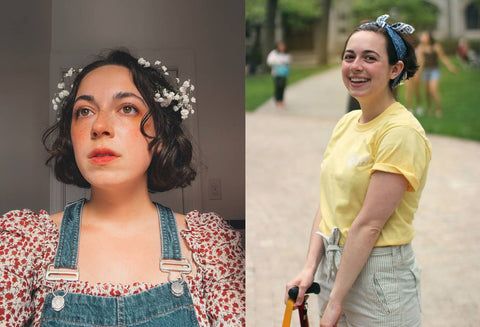
Nicole: Is there something about disability rights that you wish more people knew about whether they're disabled or not?
Britt: Oh my gosh, so many things. How do I pick one? I think the biggest thing would probably be that the [disability rights] movement is so recent. There were laws until recently that made it illegal for disabled people to be in public.
It’s part of why the world isn't accessible. For years, disabled people weren't expected or even allowed in the norm in some ways, and it’s a big part of why I think we're still struggling to get accessibility and to get equal rights and treatment.
I also want to highlight the story whereby disabled people put their bodies on the line for about a month in order to get the first federal anti-discrimination legislation on the books.
It was the Section 504 Sit-In, which took place in San Francisco in 1977. Over 120 disabled activists and allies occupied the Federal Building there to protest the government’s failure to pass regulations in Section 504 of the Rehabilitation Act that would prevent disability discrimination.
They risked going without food, medication, and other necessitates in order to fight for their rights. The Sit-In went on for 29 days, ending only when the Section 504 regulations were signed. To this day it remains the longest occupation of a federal building in US history.
And in fact, a big part of what made the protest so successful was having disabled protesters! For example, when the FBI cut phone lines to try to stop communication, Deaf folks inside and outside the building used sign language through the windows to send messages. They were a group of incredible innovative and resourceful people who organized to secure the rights they knew they deserved.
Nicole: You just touched on it a little bit. A lot of these rights started coming up in the 70s and 90s, hard won over a long period of time. Is there anything more current where you feel like a lot of progress has been made?
Britt: I mean, this one's kind of a cheat code, because it's from ‘99.
There was a big court case called Olmstead v. LC, and it was a Supreme Court case. It was brought by two women who were being held in a psychiatric institution against their will, because they were disabled.
They sued and won. Ginsburg wrote the opinion and said that it was unconstitutional discrimination on the basis of disability to keep disabled people institutionalized. And that this desire or belief that they should be institutionalized was based in the unjustified assumption that disabled people are unworthy of being part of the social fabric of the country.
And that ruling is something that later led to more options for community-based care for people, so they can live independently and not be locked up. There are a lot of people who now get to stay at home to see their friends, their families, communities and get funding for it, which I think has been very exciting.
Nicole: Now, my favorite question to ask every time: what brings you joy?
Britt: The things that bring me joy are being in community with people who understand. Being able to have close friends that are chronically ill, that are disabled, that I can talk to you about anything.
And even if they don't have the exact same disability, we'll just kind of get it on this intrinsic level. They have been the people that will go with me to the hospital and make me laugh the entire time. Having that community brings so much joy.
I think also it's the first warm day here in the Midwest, so sunshine has been bringing me a lot of joy and oddly being by being by water. Whether it's the lake or the ocean, I learned how to do adaptive surfing this summer and had just the best time.
Seeing so many people get interested in learning more about disability rights and about accessibility, who aren't disabled themselves and wanting to just be good allies. Wanting to be good friends to their friends and classmates who are disabled. A lot of that just makes me really happy to see. If I can play some small part in that, it makes it feel like all of the hard work is worth it.
Nicole: I appreciate you taking the time!
Britt: Of course. Thank you for asking me!